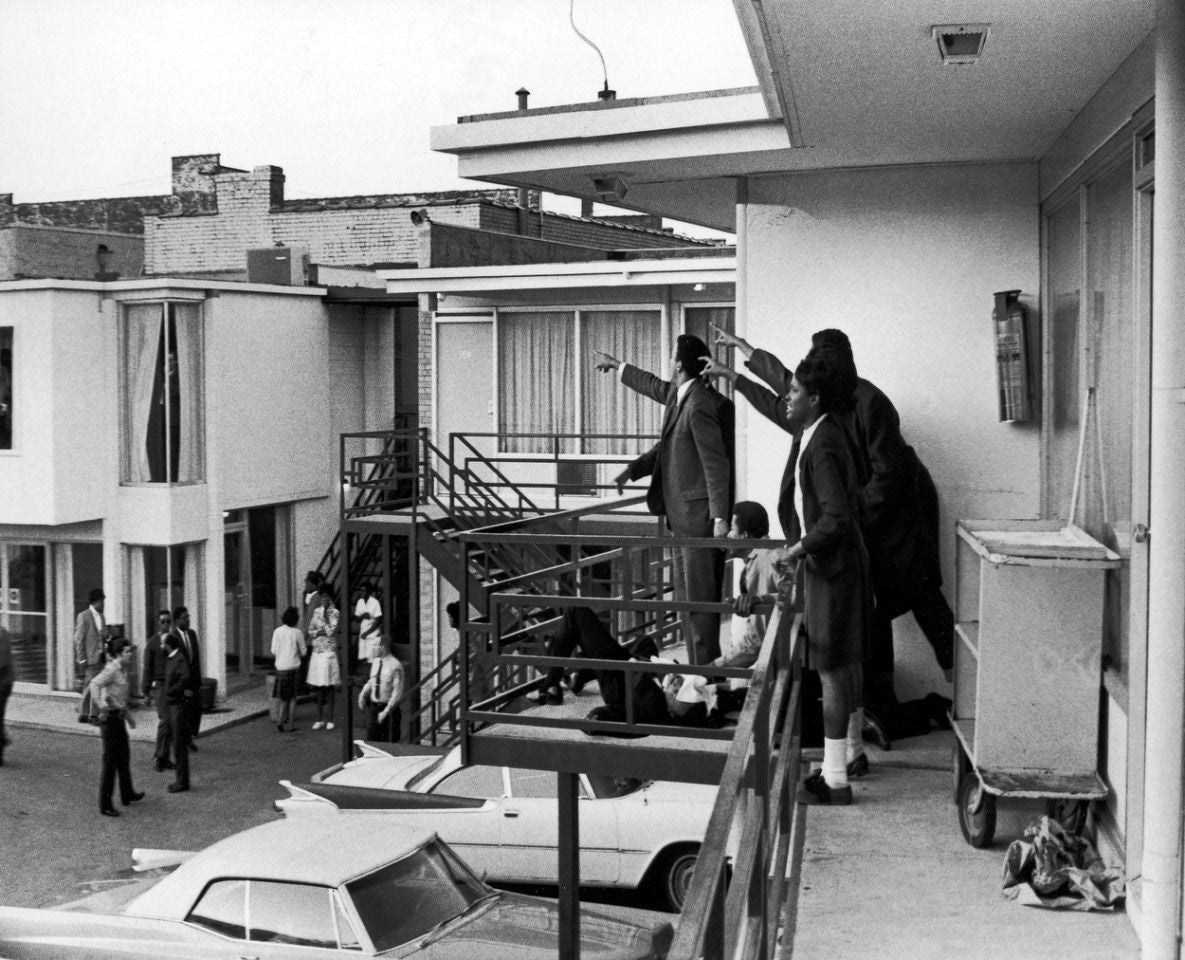Martin Luther King, 50 years later

Mason Temple Memphis, Tennessee, April 3, 1968
On April 3, 1968, at the Mason Temple (Church of God in Christ, Inc. - world headquarters), Martin Luther shared the sermon " I've Been to the Mountaintop " in front of a euphoric crowd:
“It doesn't really matter what happens now... Some people started talking about the threats that were looming. What could happen to me from one of our sick white brothers... Like everyone else, I would like to live a long life. Longevity is important but I'm not concerned about that now. I just want to do God's will. And he allowed me to climb the mountain! And I looked around me, and I saw the promised land. I might not go there with you. But I want you to know tonight, that we, as a people, will reach the promised land. And I'm so happy tonight. I have no fear. I'm not afraid of any man. My eyes have seen the glory of the coming of the Lord! »On April 4, 1968 at 6:01 p.m., Martin Luther King was assassinated while on the balcony of the Lorraine Motel in Memphis, Tennessee. His last words were spoken to musician Ben Branch who was scheduled to perform that evening at a public meeting attended by Martin Luther:
“Ben, plan to play Precious Lord, Take My HandHis friends inside the motel room hear gunshots and run to the balcony to find Martin Luther King shot in the throat. He was pronounced dead at St. Joseph's Hospital at 7:05 p.m. 50 years later, little has changed in the world, racial injustices and violence between different peoples are still a reality. Gregory Thompson, in an article titled “ MLK: The Friend We Need But Do Not Want, ” concludes:at this evening's meeting. Play it in the most beautiful way. »
Martin Luther King, Jr. was slowly transformed from a courageous man with an extraordinary vision for democracy into little more than a highly quotable civic abstraction; a figure that many revere, but few really listen to.

How can we apply the testimony of Martin Luther King Jr. in our lives?
- King calls us to see with the eyes of love. So that we can see our neighbors, ourselves and our enemies as creatures created by and for love. For King this means that we are all bearers of an ineradicable glory that must be protected and honored.
- We must then work in love within our society. We must exemplify this love in our individual habits. King wanted to build a new society ruled by love. He understood that sometimes it takes sustained effort and that sometimes you have to step aside.
- Third, King calls us to embrace the sufferings of love. This is a call to self-denial. One of the bitterest contradictions in King's life is how little he saw his dream for his nation realized.

